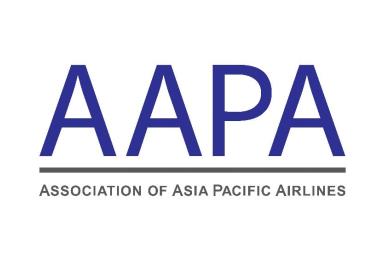KUALA LUMPUR, 30 April 2020: Preliminary traffic figures released Wednesday by the Association of Asia Pacific Airlines (AAPA) showed international air passenger demand plummeted in March as the Covid-19 pandemic spread worldwide.
Countries imposing travel restrictions globally more than doubled in March, which led to sharp falls in passenger demand, forcing drastic cutbacks in airline operating schedules and the grounding of thousands of aircraft.

Asia Pacific airlines carried only 8.8 million international passengers in March, representing a steep 72.9% decline compared to the same month last year. Demand in revenue passenger kilometres (RPK) fell by 70.7%. In comparison, available seat capacity fell by 55.6% year-on-year, leading to a 27.4 percentage point plunge in the average international passenger load factor to 52.9% in March.
Commenting on the results, AAPA Director General Subhas Menon said: “The sharp escalation in Covid-19 cases beyond Asia, severely impacted travel on international routes in March, with many countries effectively sealing off their borders.”
“Overall, Asian carriers saw a 38% decline in international passengers carried to a combined 59 million in the first quarter of the year. During the same period, international air cargo demand fell by 10%, following declines in new export orders.”
Looking ahead, Menon added, “There is considerable uncertainty as to how long the global slump will persist. Businesses and consumers are likely to remain risk-averse until more is known about the nature and duration of the Covid-19 pandemic spread. Governments would persist in their efforts to suppress the spread of the virus through the imposition of strict measures on social distancing, movement restrictions and border controls.
“Even though Asia Pacific airlines are facing unprecedented challenges operationally and financially, they have been maintaining air connectivity by flying stranded people home and transporting essential supplies to places which need them most.
“The progress of the pandemic varies in each country. The eventual recovery in travel demand is expected to be slow and sporadic. The industry cannot stay grounded for too long as it would be to the detriment of not only aviation but also global trade, tourism and the wider economy.
“Governments need to come together to agree on a harmonised mitigation framework, that is supported by public health professionals and all industry stakeholders, to restart aviation without too much delay.”






